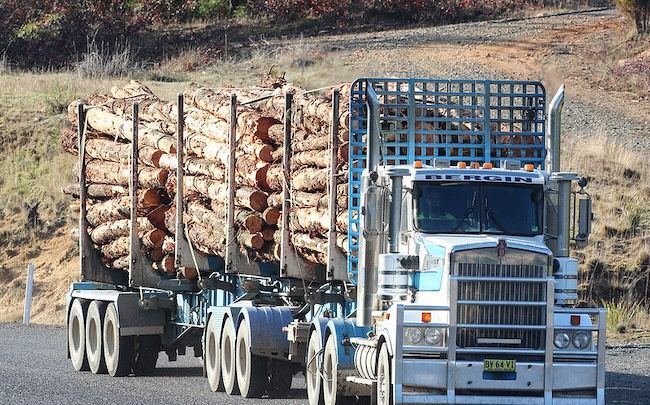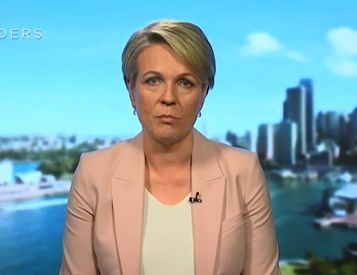Conservation groups can now challenge Forestry Corporation decisions ... and the list of concerns is long. Sue Arnold reports.
A RECENT HIGH COURT dismissal of an appeal by the NSW Forestry Corporation (FCNSW) was celebrated by many conservation organisations.
The appeal was an effort by the Corporation to ensure that only government entities, as defined in the Forestry Act 2012, could commence proceedings against them. The “government entities” involve the NSW Environment Protection Authority (EPA), which monitors forestry operations and enforcement.
There are no legal provisions under the Forestry Act that would force the EPA to take action against the NSW Forestry Corporation as a result of conservation groups submitting evidence of non-compliance and requesting enforcement.
The judgment ruled that:
'Absent a clear and unmistakeable statutory intention to the contrary, proceedings can be commenced and maintained by a person whose private rights are affected or who has a special interest in the subject matter of the proceeding.’
Prior to the Court’s dismissal, any legal attempt to stand as a plaintiff and sue the Corporation for non-compliance with logging legislation provisions was difficult, replete with conflicting decisions and lacking clear guidelines.
A decision on standing requirements remains at the Court’s discretion.
Whilst it is encouraging that the highest court in the land has affirmed public citizens' entitlements of some kind, the attempts made by the Corporation to stifle public citizens’ democratic rights raise significant issues.
As a state-owned corporation, it is subject to the State Owned Corporations Act 1989.
According to this legislation, some of the principal objectives of a state-owned corporation are:
..to exhibit a sense of social responsibility by having regard to the interests of the community in which it operates, and
..where its activities affect the environment, to conduct its operations in compliance with the principles of ecologically sustainable development contained in section 6 (2) of the Protection of the Environment Administration Act 1991.
The record demonstrates these objectives don’t mean much in the light of the Corporation’s continued attempt to censor public protest and legal challenges against its destructive practices.
Let’s put the evidence in perspective.
According to the Nature Conservation Council, the Corporation faced $18 million in fines in 2022 for destroying habitat, giant trees and hollow-bearing trees. This was, at the time, the fifth fine issued by the courts in four weeks.
In 2024, the Corporation was fined $360,000 for cutting down 53 eucalypt trees on the NSW South Coast. This was in breach of conditions imposed by the Environment Protection Authority enforcing the Coastal Integrated Operations Approval, which is the state’s legal approval for industrial logging.
In 2025, it was fined $30,000 for failing to protect critical habitat in a state forest near Coffs Harbour.
These fines are just the tip of the iceberg. In spite of hundreds of complaints with evidence of non-compliance provided to the Environment Protection Authority, no action or enforcement has been taken. IA is aware of many conservation and community organisations with comprehensive lists of non-compliance, all ignored by the Environment Protection Authority.
Professor Graeme Samuel, who conducted an independent review of Australia’s federal environmental laws, said the ongoing breaches by NSW Forestry Corporation, despite enforcement action by the Environment Protection Authority, suggested there was an ingrained culture of non-compliance at the logging agency.
He said changing culture and attitude required action from the top — from the relevant ministers and the premier.
That’s not likely to happen any time soon. Politically, native forests and biodiversity losses are stuffed.
A government led by Opposition Leader Peter Dutton will not support additional bans on native forestry, introduce "country of origin" labelling for timber and will remove all public funding from the controversial Environmental Defenders Office.
Australia’s forest industry has confirmed that a Dutton coalition government will not support any further bans on native forestry, and secure ongoing managed and regulated timber harvesting by establishing permanent timber production zones.
Welcoming the commitments, Australian Financial Complaints Authority (AFCA) chief executive officer Tim Lester said:
These policies would provide much-needed certainty for businesses, hundreds of communities and tens of thousands of workers. Production forestry from our regrowth native estate is sustainable and renewable, with positive payoffs for communities and the environment.
Australia’s native forest industry is safe (for now) after Anthony Albanese, the country’s Prime Minister, overruled Tanya Plibersek, his environmental minister, and scuttled last-minute negotiations to secure a deal on Nature Positive laws before the Christmas parliamentary shut-down period.
Dutton’s forest policies are in stark contrast to efforts by senior NSW Liberals in 2023 to seek support from the Albanese Government to generate carbon credits from ceasing logging in state forests.
The Liberal Party plan included commissioning Frontier Economics to examine how the cost of reducing logging in southern NSW forests by 20% could be covered by the resulting carbon credits.
According to The Guardian, the funds would deliver:
'...major ecological benefits for species such as koalas, greater gliders and other threatened species as well as significant economic benefits for regional Australia.'
Neither Environment Minister Tanya Plibersek nor Climate Change Minister Chris Bowen replied to the Liberal request.
In any event, the National Party predictably blocked the Liberals' plan to end native forest logging.
As yet, there has been no indication that a future Albanese Government will do anything to stop native forest logging or the ongoing catastrophic loss of forest fauna.
Instead, the Albanese Government is investing $300 million in the future of the forestry industry. Translated, that means more logging, more loss of native forests, koalas, gliders, possums, birds, ecosystems, eucalypts — it’s a long list.
'Native forest logging must end to ensure the immediate protection of forest ecosystems. Abolition of the Regional Forest Agreements and the same treatment of forestry operations as other activities under environmental law.'
The Australian Conservation Foundation revealed nearly 2 million hectares of koala habitat have been bulldozed since 2011, despite political species protection promises.
Meanwhile, the NSW Minns Government continues to ignore public protest, scientific research and Labor’s promise to create the Great Koala National Park. Instead, approving logging in koala hubs, which are meant to be spared — ensuring that if any park is actually declared, it will be a skeleton. A testament to political lies.
Both major parties have zero interest in the environment, make false promises and are willing to approve the extinction of Australia’s iconic and unique species as the price of re-election.
Australia holds the record for the highest number of mammal extinctions globally since European colonisation. Of all global mammal extinctions since 1500, 35% have been Australian. Almost 90% of terrestrial species are found only in Australia.
And people are only worried about Donald Trump?
Sue Arnold is an IA columnist and freelance investigative journalist. You can follow Sue on Twitter @koalacrisis.
 This work is licensed under a Creative Commons Attribution-NonCommercial-NoDerivs 3.0 Australia License
This work is licensed under a Creative Commons Attribution-NonCommercial-NoDerivs 3.0 Australia License
Support independent journalism Subscribe to IA.

Related Articles
- The absurd evil lies used by the logging industry to justify its existence
- War declared on logging industry
- Governments turning deaf ears on logging outrage
- Politicians persist in plundering the planet for profit
- Tasmanian Liberals’ ecocide













